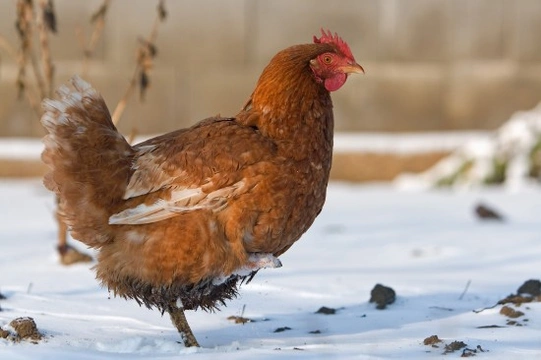
How to Treat Canker in Poultry: Symptoms & Remedies
Keeping chickens is rewarding, and each bird has its own unique personality, from the assertive hens dominating the pecking order to the more reserved ones keeping to themselves. Proper care and hygienic housing can help your flock live long, healthy lives. However, chickens can face health challenges, one being canker, a serious disease affecting their upper respiratory tract that, if untreated, may cause breathing difficulties or choking.
Understanding Canker in Chickens
Canker, also known as avian trichomonosis, is caused by the protozoan parasite Trichomonas gallinae. It primarily attacks young birds' upper gastrointestinal tract, including the mouth and oesophagus. The disease often spreads through contaminated water or feed, frequently carried by pigeons, doves, or wild birds sharing the same resources.
Symptoms to watch out for include yellowish or cheese-like plaques inside the mouth, difficulty swallowing, reduced appetite, mouth odour, breathing through an open mouth, ruffled feathers, balance issues, and in severe cases, a foul-smelling, enlarged crop or sudden death due to airway blockage.
Diagnosing the Condition
It's vital to consult a vet for accurate diagnosis, as other conditions like candidiasis (thrush) affect similar areas but have different causes and treatments. A vet can identify the infection and recommend appropriate antiprotozoal medications such as Metronidazole, Carnidazole, Ronidazole, or Toltrazuril.
Step-by-Step Treatment with Copper Sulphate (Bluestone)
Step 1: Preparing the Medicinal Solution
Copper Sulphate, known as Bluestone, is a traditional effective treatment for canker and some related conditions. However, it must be handled with care because undiluted powder is highly toxic to chickens.
- 2½ litres of water
- 1 teaspoon apple cider vinegar
- 1 gram copper sulphate
Dilute the copper sulphate in water and mix with the apple cider vinegar before offering it to your birds.
Step 2: Making the Mixture More Appealing
Some chickens might refuse medicated water due to taste. Adding a small amount of cranberry juice can make the mixture more palatable, encouraging your chickens to drink and receive the necessary treatment.
Step 3: Administering the Treatment
Provide the mixture as the only water source for 4 to 7 days, depending on whether it’s a preventative or active treatment. Remove all other sources of drinking water to ensure full consumption of the medicinal solution. Use a plastic water bowl to avoid reactions with metal containers, and prepare fresh mixture daily, not topping up old liquid.
Step 4: Supporting Recovery and Preventing Spread
If wild birds have access to the same water source, they may also catch or harbour canker. Treating them simultaneously can help protect your flock by preventing reinfection. Isolate any sick birds to minimise spread and maintain good coop hygiene to reduce the risk of future outbreaks.
Other Conditions Treated by Copper Sulphate
Copper sulphate is also useful against several related poultry diseases, including:
- Roup
- Trichomoniasis
- Mycosis (mould infection of the crop)
- Thrush (candidiasis)
- Moniliasis
- Sour crop
Often a suspected crop impaction might actually be caused by canker infection leading to food blockage. Treatment with copper sulphate typically resolves this issue, although you may need to assist a reluctant bird by using a syringe carefully to avoid aspiration.
Veterinary Medications and Advice
If you prefer not to use copper sulphate or the condition persists, consult your vet for other treatment options such as:
- Nystatin
- Carnidazole (Spartrix)
- Metronidazole (Flagyl)
Preventative Measures and Responsible Care
Maintaining strict hygiene, preventing wild bird access to feeders and water, and isolating sick birds early are key to controlling canker. Monitor your flock regularly for any signs of illness and act promptly to safeguard their health. Responsible poultry keeping includes understanding the risks and providing appropriate care and veterinary support.
When to Seek Veterinary Help
If you notice severe symptoms like difficulty breathing, inability to swallow, balance problems, or an enlarged foul-smelling crop, seek veterinary advice promptly. Early intervention improves outcomes significantly.
Conclusion
Canker is a serious but treatable condition affecting poultry. Early recognition and treatment, combined with supportive care and good biosecurity, can protect your flock’s health and prevent deaths from this disease. Using copper sulphate with care, alongside veterinary antiviral drugs, offers a well-rounded approach to managing canker in chickens.



